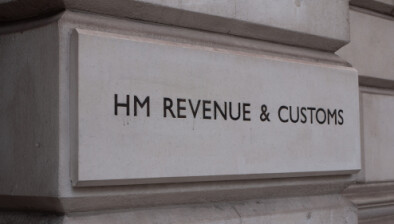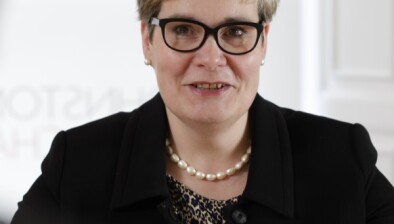Supreme Court allows HMRC appeal against Court of Session decision awarding historic input VAT to Scottish NHS board

The UK Supreme Court has allowed an appeal by HM Revenue and Customs against a decision of the Court of Session to allow for the recovery of historic input VAT by the NHS Lothian Health Board for private work undertaken between 1974 and 1997.
NHS Lothian claimed unrecovered input tax in respect of private work undertaken in its laboratories in the given period, for which it had originally argued it was entitled to over £7 million under provisions of the Finance Act 2008. Other similar claims had been made by other Scottish NHS boards, which together had an estimated combined value of around £38m.
The appeal was heard by the President of the Supreme Court, Lord Reed, along with Lord Briggs, Lord Sales, Lord Leggatt and Lady Rose. David Thomson KC and Ross Anderson appeared for the appellant and David Southern KC and Denis Edwards for the respondent.
Erred in approach
The appeal concerned VAT inputs incurred in the course of the work of laboratories within the respondent’s remit. While they primarily provided services to NHS hospitals and clinics, they also provided services to outside bodies for which they charged fees. It was accepted by HMRC that these services constituted a business activity for VAT purposes, allowing the respondent to recover a proportion of their input VAT relative to the amount of lab work related to such business activity.
Following lengthy correspondence between the parties, HMRC rejected the claim on the basis that NHS Lothian had not adequately explained the method it had used to calculate the recoverable input tax. Other reasons were that NHS Lothian had not shown that the input tax claimed had not already been recovered by it previously and had not explained why the annual input tax claimed for some of the earlier years was over four times higher than the input tax being claimed in the then current year.
NHS Lothian appealed the decision to the First-tier Tribunal, by which time the value of the claim had been reduced to £900,00. The FTT dismissed the appeal, however the Inner House of the Court of Session overturned that decision and remitted the case to a differently constituted FTT. It was the view of the Inner House that because the nature of the business had remained the same throughout the period, the nature of the inputs would have been essentially the same throughout the claim period, and thus the methodology of the FTT had been flawed in determining the appeal.
Counsel for the appellants argued that the Inner House had erred in its approach to the standard of proof in late VAT input claims, in particular by drawing a distinction between the establishment of the right to deduct some input tax and the quantification of that tax. Further, it was not entitled to interfere with the conclusions of the tribunals below it in the absence of an error of law, which had not been properly identified in this case.
Mistaken reading
Lady Rose, with whom the other four judges agreed, observed: “The Inner House referred to ‘the specific finding by the First-tier Tribunal that the claim for unrecovered input tax would have remained essentially the same throughout the period from 1974 to 1997’. The Inner House was mistaken in reading the FTT’s decision as making such a finding. The FTT’s findings were that the nature of the business activity remained the same, therefore the inputs remained the same because the supplies that NHS Lothian needed to acquire in order to carry out its work did not change.”
She continued: “Since they thought that the FTT had made such a finding, this misdescription of the findings of fact led the Inner House to conclude that the FTT must have applied too high a test in order, despite that finding, to reject the claim. They therefore concluded that the FTT had relied on the absence of primary data, by which they meant sales ledgers and tax invoices, and had failed to address the main issue which was the taxpayer’s reliance on secondary evidence and inferences. I regard that criticism of the FTT as unjustified.”
On the nature of the right to deduct input VAT, she said: “The Inner House was wrong to approach the appeal on the basis that because NHS Lothian must have incurred some input tax, the FTT’s task was to decide which was more likely: that NHS Lothian’s claim was right or that no input tax or a much smaller amount of input tax was deductible. Any such principle would be inconsistent with the [EU Principal Vat Directive] which places on the taxpayer the burden of proving that input tax has been incurred.”
She went on to say: “The Inner House’s approach would mean that once the taxpayer can show that it bought at least some goods and services for use in at least some business activity then HMRC must accept the claim to deduct whatever amount of input tax the taxpayer puts forward unless they can establish that either no input tax was paid or no business activity carried on.”
Lady Rose concluded: “There is no doubt here that, if NHS Lothian had maintained and kept the necessary accounting records, it would have been able to prove to the last penny how much input tax it was entitled to deduct. There is no inherent imprecision in this exercise as there is with, for example, translating pain and suffering into a monetary figure or predicting future earnings or medical care needs. In my judgment, therefore, there was nothing in the approach of HMRC or the reasoning of the FTT that made NHS Lothian’s claim for historic input tax virtually impossible or excessively difficult.”
The appeal was therefore allowed, with the Supreme Court holding that the decision of the original FTT was correct.









